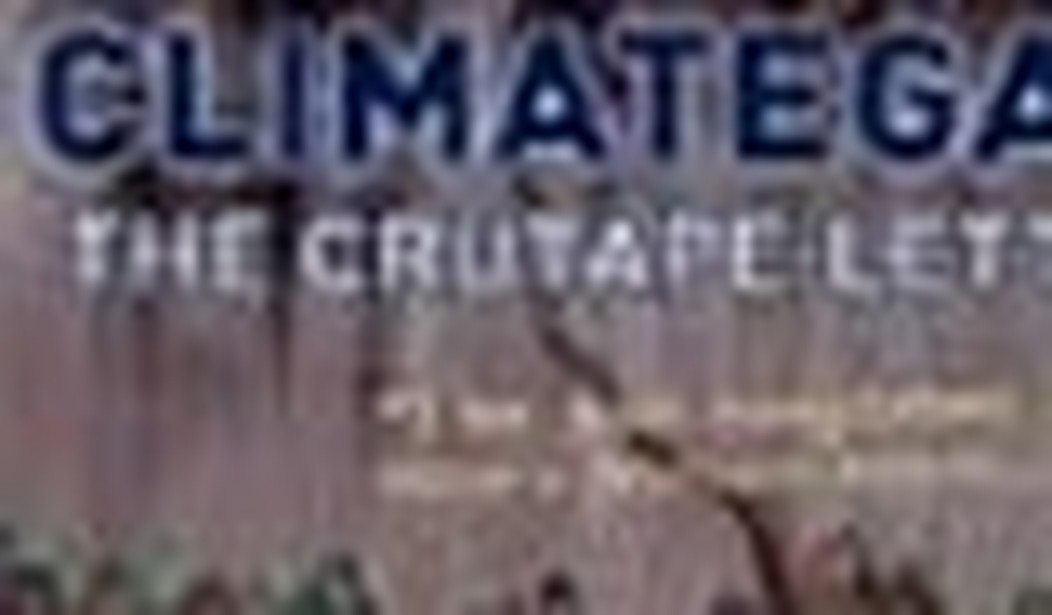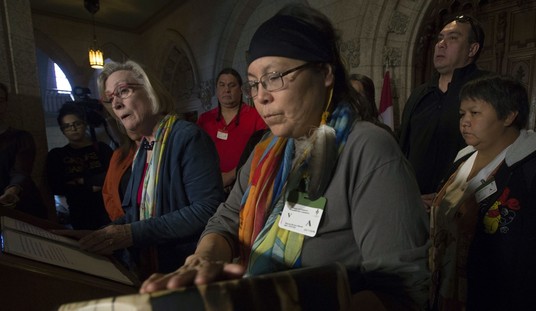The world of climate science — climate change, global warming — has changed radically in the last two months. On the night of November 19, a compressed archive containing emails and files from the University of East Anglia’s Climate Research Unit (CRU) leaked and was quickly disseminated throughout the world. This archive was made available on an FTP server in Siberia, and mysterious comments were posted on several blogs pointing to the file. This leak, and the scandals that followed, quickly became known as Climategate, and the contents of the compressed archive as the Climategate files.
Steven Mosher and Thomas Fuller were among the very first to notice the files. Mosher called the world’s attention to them in a comment on the Blackboard, Lucia Liljegren’s blog. Climategate: The CRUtape Letters is the first book covering the files and other documents uncovered during the first weeks of the scandal.
Even on first look, it was clear the Climategate files told a fantastic and fascinating story of professional conflicts, probable scientific misconduct, and possibly even crimes committed by some of the scientists most closely associated with the theory that human emissions of “greenhouse gases” — primarily carbon dioxide, along with methane and some others — were leading to significant climate change.
This theory of anthropogenic global warming, or AGW, became the basis for claims of a climate crisis that must be solved. The UN chartered a nongovernmental organization, the Intergovernmental Panel on Climate Change (IPCC), to assess the scientific evidence and determine if climate change posed a risk to mankind.
At the same time, ex-U.S. Vice President Al Gore became an independent filmmaker. His documentary An Inconvenient Truth, with its dire predictions of rising sea levels, melting ice caps, disappearing glaciers, and general catastrophe, won an Academy Award for Best Documentary. Gore and the IPCC shared a Nobel Peace Prize. The science, we were told, was settled.
While this was going on, a small, ad hoc group of scientists and interested laypeople, the “global warming skeptics,” were examining the work on which the IPCC reports were based.
Steven McIntyre of the Climate Audit blog was trying to replicate the IPCC conclusions and having little success. Methods turned out to be flawed and faulty, raw data wasn’t even available through a Freedom of Information Act request, and there seemed to be a haunting similarity to the reasons offered by different research groups. The data McIntyre could obtain suggested that there were serious technical flaws in some of the work on which the AGW theory seemed to depend, but those papers proved hard to publish. Processes changed, and editors seemed to be working to avoid publishing what should have been significant research.
Other researchers, who weren’t necessarily skeptical of global warming in itself, complained that dissenting scientific views were being suppressed. Roger Pielke Sr., then of Colorado State University, resigned from editing a section of the IPCC report and from the IPCC working group over this.
To skeptics, this seemed to add up to some kind of conspiracy or collusion, which took on political color as AGW was increasingly identified with the political left and the skeptical position with the political right. And the notion that there was some kind of conspiracy was widely derided as a paranoid conservative fantasy.
The Climategate files opened up what was happening behind the scenes, and it turned out there was no paranoid fantasy: they really were out to get you.
The files documented insiders in the AGW community subverting peer review, colluding to prevent papers from being published and attacking editors, scientific skeptics, and journals that dared to publish skeptical papers, and conspiring to prevent data from being released to skeptical investigators.
For climate skeptics, the emails at first seemed to be too good to be true — they confirmed suspicions that even the skeptics thought weren’t plausible. But the emails and files led to closer examination of the data, and suddenly contradictions came thick and fast, as the dominoes in the climate change story began to fall. Questionable data manipulations are now being revealed every day.
The IPCC reports that were acclaimed as “settled science” came in for closer examination, and complaints that had been ignored in the past were suddenly taken seriously. Roger Pielke Sr. documented how the results of a report in which he’d participated were actually reversed and cited as supporting a conclusion the report had denied.
In one glaring example, the IPCC report quoted a conclusion that glaciers in the Himalayas would disappear by 2035. When this was examined, it turned out that the source of this conclusion was a telephone conversation reported by the New Scientist magazine. The IPCC report, advertised as the result of the best peer-reviewed science, turned out to be claiming as fact something that had never been subject to any review — and may have actually been a typographical error.
Mosher and Fuller start the book with the Climategate emails. They put the controversy into context, discussing the major topics in the climate debate and identifying some of the major players on both sides. They than lay out a chronological narrative of the controversy between AGW proponents and skeptics — starting in 2004 and 2005 with the first attempts to confirm some of the scientific results and through the release of the Climategate files and the explosive attention the files drew. The narrative does a fine job of showing just how the emails clarified what was happening: Mosher and Fuller match emails from the files with events in the timeline, interpreting each of the emails in context.
Climategate: The CRUTape Letters has a few flaws. Self-published through Amazon’s CreateSpace print-on-demand service, it could have used the services of an editor, and shows it with occasional clumsy phrasing and small picky errors. (For example, they mention one scientist as having moved from NCAR, the National Center for Atmospheric Research, to UCAR, the University Corporation for Atmospheric Research. UCAR is the corporate body that runs NCAR.) These little details, however, aren’t important. What’s important is the story, and the story is damning. They write:
A section of politically active scientists, policy makers, politicians, and NGOs in effect put on white coats and told us that our planet was gravely ill, and that we needed to follow their prescriptive advice to save ourselves from a deadly disease. That’s really how they framed the discussion, and they classified everyone who disagreed as a denier, like a smoker dismissing his cough and waving away the x-rays. …
They may protest that the diagnosis is too technical for the patient to understand and that their actions are for the patient’s good. They may even believe it. But we call it quackery.
The danger here is that politics have subverted the process of science. If anthropogenic global warming is not true, it has at the least led to wasting billions of dollars on approaches to reduce the impact of what was, at bottom, a fantasy.
But if AGW is true — and there are some scientific reasons to think it might be — then we need our scientific understanding of the problem to be complete, and we need to be able to trust the results on which we’re basing extraordinarily expensive and difficult decisions. It’s entirely possible, as Roger Pielke Sr. believes, that the most important causes of AGW are things that can be resolved much more easily and inexpensively than massive interventions in the economies of the world.
The conspiracy revealed in Climategate: The CRUTape Letters may have prevented better science from showing us better ways to solve the problem. The actions of these scientists have now corrupted the science that exists and destroyed what trust we might have had in the conclusions.
If there is a crisis, the climate cartel conspiracy may actually have delayed the action they think is essential.










Join the conversation as a VIP Member